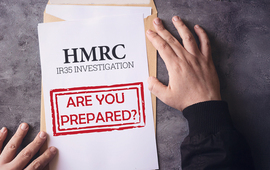Articles
Our latest IR35 blogs, guides and spotlights
-

Regulatory control found insufficient to meet the employment status test
Tribunal ruled regulatory controls alone don’t establish employment-type control in status disputes.
-

Outside IR35 vs Inside IR35: What’s the Difference?
We explain the critical differences between “Outside IR35” and “Inside IR35”, as it affects how contractors are taxed and whether your business takes on additional tax responsibilities.
-

Pro Tip: Handle Disagreements Transparently and Efficiently
IR35 requires organisations to manage status disagreements from workers. A clear and well-executed process is not just a requirement; it also demonstrates your organisation’s commitment to fairness and transparency.
-

Pro Tip: Role-Based Determinations Done Right
Role-based determinations can speed up the hiring process, but it's essential to check IR35 status of each engagement once the worker is identified and contracts agreed.
-

IR35 Risk: How to Prepare for an HMRC Investigation
HMRC is actively investigating businesses to check IR35 rules are being followed correctly. Getting it wrong can be disastrous, so here’s how to prepare and protect your business.
-

Pro Tip: Use Tools and Processes for IR35 Accuracy
When aiming for IR35 compliance, using the right tools and involving key personnel ensures your decisions are well-informed and consistent.
-

Pro Tip: Understand Employment Status for Accurate Determinations
Accurate status determinations are the cornerstone of IR35, so it’s essential to understand and correctly apply the key employment status indicators when assessing your workers.
-

What is IR35? Why Off-Payroll Rules Still Matter in 2025
IR35's impact on medium and large businesses has only grown since the rules changed in April 2021. Here’s what you need to know to stay compliant in 2025.
-

Strengthen Your IR35 Defence: The Crucial Role of Contracts
When HMRC checks IR35 compliance, they always consider the contractual agreements; clear and comprehensive contracts significantly improve a business's ability to defend itself.
-

Pro Tip: Know your supply chain
Under IR35 / off-payroll working, if HMRC cannot recover unpaid taxes from parties in the labour supply chain, the liability may fall on your organisation. Ensuring that your supply chain operates PAYE properly is a critical step in reducing this risk.

